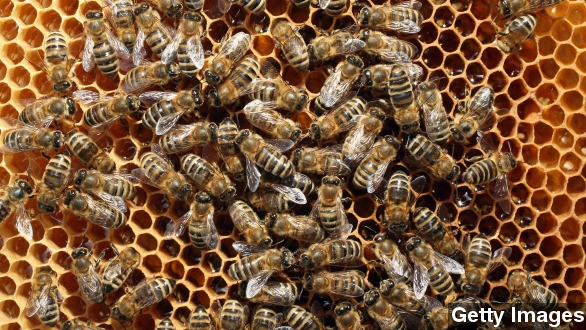If you know anything about bees, you've probably heard of Colony Collapse Disorder or CCD. It's not a new phenomenon — the problem of bees abandoning their hives has been continually observed over the past decade. (Via Getty Images)
And yet, if you picked up The New York Times, or The Washington Post this past week ...
Or watched National Geographic: "We're looking for really pretty bees."
Or the BBC: "There's a great saying among beekeepers which is that bees don't read the same books that we do."
... you will have seen or read something about bees.
Bees are all over the media right now, and most of the stories have to do with that aforementioned CCD, which first made international headlines back in 2006, when bees started dying off in unprecedented numbers. (Via Youtube / Jolie Bee UK, CNN)
So why are all these major outlets writing about bees now? There are a couple possible answers.
As The Washington Post feature points out, bees have been in the national conversation lately, as studies released at the end of June pinpointed a possible cause of CCD in Neonicotinoid pesticides.
Also at the end of June, President Obama got involved, signing a memo to push for the first ever federal pollinator strategy, "to expand Federal efforts and take new steps to reverse pollinator losses and help restore populations to healthy levels." (Via The White House)
For its part, The New York Times column opts to focus on what humans can learn from the bees' demise, writing, "There is a lesson in the decline of bees about how to respond to the most fundamental challenges facing contemporary human societies. We can best meet our own needs if we maintain a balance with nature."
But interest in bees, and why they're dying out, could also be a seasonal thing.
Bees are more active over the summer months, and Google Trends shows searches with the keyword "Bee" seem to spike around May and June each year.


